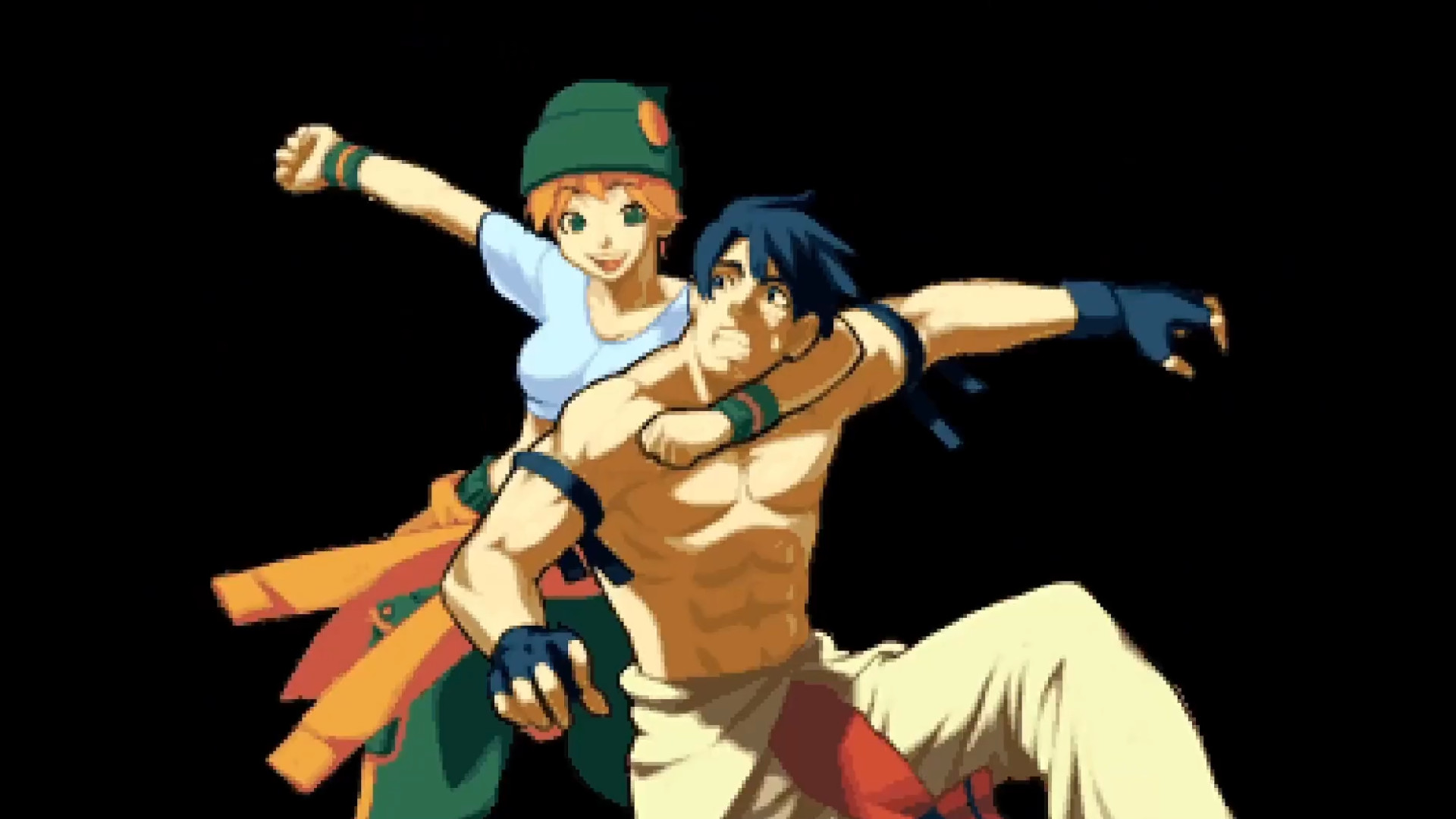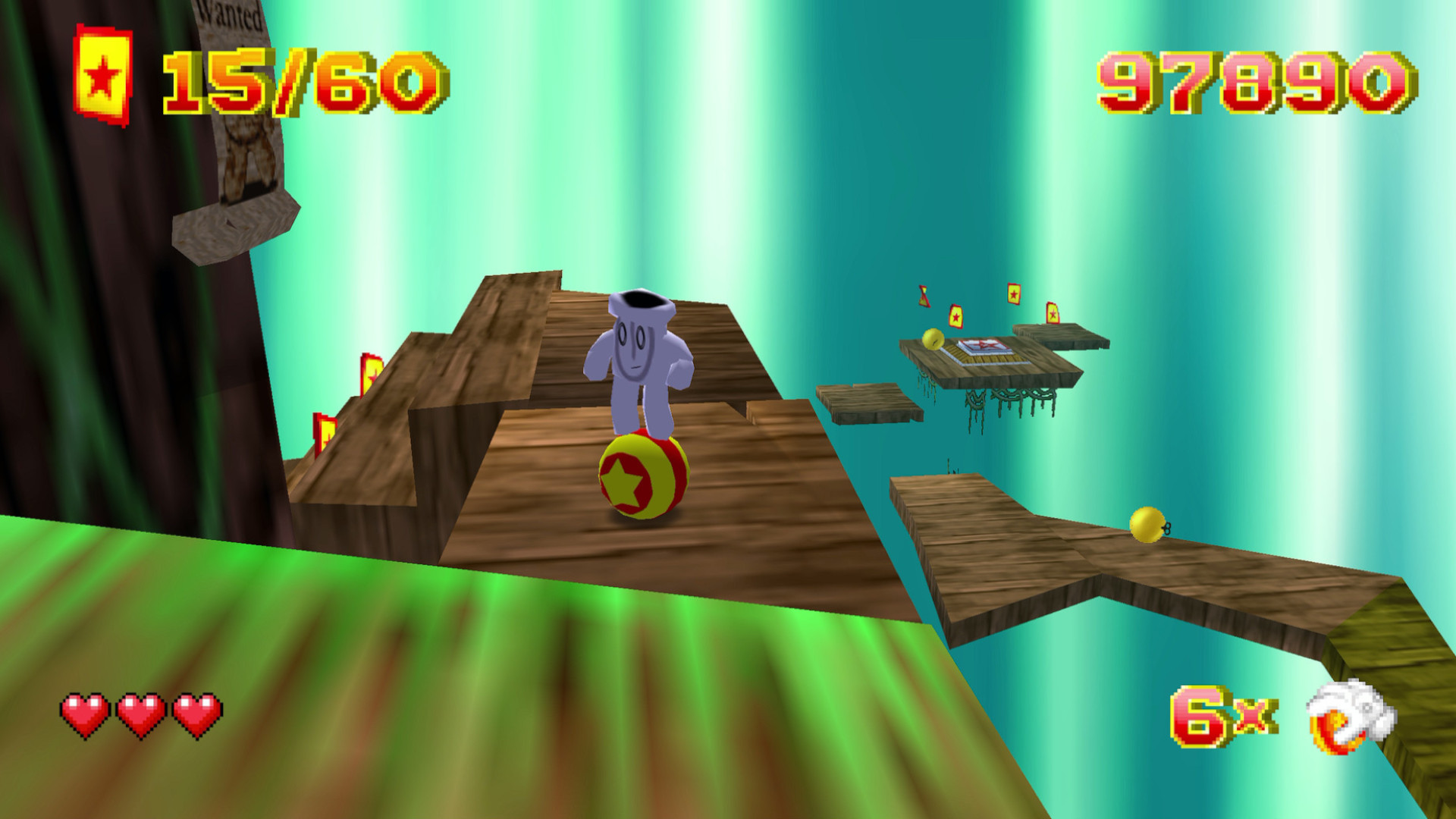The name that proved console emulation is "100% legal" is back for the third time as a '90s nostalgia mall that's also helping remaster retro cult classics
Bleem is back once again

PlayStation emulator Bleem had a short run, but one of notable historical significance - it was, after all, the emulator that proved emulation is legal. It died an unfortunate death in 2001, but the name at least is making a new comeback as what amounts to an online mall for '90s nostalgia that's also helping remaster retro cult classics. This is actually Bleem's second comeback in just a few years, and the story of how we got to this point is a little complicated.
Bleem (or 'bleem!' as the original logo styled it) launched in 1999 as a commercial PS1 for PC and Dreamcast. Bleem was sold in stores, and let you stick your PlayStation discs in non-PlayStation platforms to play them there. As you might imagine, Sony was not happy about this, and the company quickly took Bleem to court in the US alleging copyright infringement and unfair competition.
But Sony lost its lawsuit. In the most high-profile lawsuit ever to arise around emulation, the courts sided with the emulator devs, and you'll find this fact cited pretty much any time there's a discussion about the legality of emulation. There are all kinds of caveats here - you can't distribute somebody else's copyrighted software and you can't provide direct copies of the BIOS files many video game consoles need in order to operate - but Bleem proved that you can distribute an emulator, and even sell it, without legal issue.
Unfortunately, Bleem also proved that you can still end up losing by merely being taken to court, regardless of the verdict. The company shut down in 2001 because it couldn't handle the court fees, and Bleem became little more than a historical footnote. That is until the rights to the name got picked up by Eli Galindo, founder of the retro-focused game publisher Piko Interactive, in 2018.

"Why Bleem! you may ask?" Galindo wrote in a blog post back in February. "Well for me it only makes sense. Bleem IS the representation of legal emulation. Bleem set precedent in the US Court system by showing how reverse engineering a console was 100% legal. Bleem! as a company died so we all could enjoy old games legally for virtually ever."
Galindo initially had plans to relaunch Bleem as a sort of retro-focused Steam competitor that never really seemed to get off the ground. Instead, it simply became a bit of publisher co-branding for various retro re-releases on Steam, accompanying new releases of mid-tier N64 platformers like Glover and 40 Winks, infamous oddities like Super 3-D Noah's Ark, and a whole bunch new releases for retro games that are barely remembered at all.
But now those plans are turning into the much more ambitious Bleem.net. "Bleem.net is a celebration of all things retro, mainly the 80s, 90s and early 2000s," Galindo explained in that blog post. "It is a safe space where you will find a bit of everything from the era. It is like a destination store, or like some sort of digital mall? It's hard to explain."
Weekly digests, tales from the communities you love, and more
Galindo plans to turn it into a multifaceted digital marketplace and gallery that's equal parts 1999 website and mall. That blog post evokes some serious '90s nostalgia about how you might "go to KB Toys to buy some toys and video games," grab a T-shirt from Spencer's, and then go "to Waldenbooks and check out some comic books." Equally, it calls up the "90s and early 2000s internet," before the online space was "monopolized by a few major companies which make money off audience created content."
According to Galindo, an online space that evokes these nostalgic sentiments "is what my vision for Bleem.net is. Capture all those fuzzy feelings of having things you love and you love to do in one place; having that online website you love to check out every so often to see if there is anything new."
In more concrete terms, Galindo plans for Bleem.net to incorporate:
- A merch store for all Piko Interactive's licensed properties
- A digital game store where you can legally purchases ROMs for flash carts and emulation boxes
- A place to buy new and reproduced cartridges for retro consoles
- A place to buy physical versions of modern retro remasters
- A cartoon streaming service
- A digital comic book store
- On-demand emulation of retro games through your browser
That does all sound pretty neat to my mid-30s heart, but it all depends on what content Piko has actually managed to acquire. "In the last 10 years we have acquired close to 230 different video games from the 80s 90s and early 2000s," Galindo says. "We have also acquired several comic book properties, and toy properties; as well as cartoon intellectual property." I don't know what the full list of Piko properties looks like, but their highest profile release so far has been Glover, which isn't even particularly notable among '90s 3D platformers.
So why am I telling you about an ancient emulator and February 2024 blog post here in October? Well, Bleem.net still remains under construction but the Bleem brand just had its first movement in ages. It's now - as "Bleem.net" - a co-publisher on QUByte Interactive's remaster of the Neo Geo fighting game Rage of the Dragons, which is getting re-released on modern platforms as Rage of the Dragons NEO.
News of Bleem's involvement comes alongside the announcement of a Steam beta for Rage of the Dragons NEO, scheduled to run from October 11 through 13, which will offer an opportunity to test new online features like ranked battles, lobbies, match replays, and a leaderboard. It looks like a solid remaster, and while Rage of the Dragons isn't exactly the highest-profile classic fighting game out there, it compared well against its contemporaries at the time.
Bleem.net is listed on Steam as a separate publisher distinct from the just plain Bleem that had been putting out all those previous retro releases, and to date it's been associated with two titles: Rage of the Dragons NEO and the Top Racer Collection, which was released back in March. Much as I enjoy the opportunity to talk about Bleem's history for a bit, I can't help but wonder why.
For all Bleem's historical significance, it's now just a name that's been divorced from all that context. I can't help but feel it's all a little too illustrative of the current state of retro gaming, a significant chunk of which is made up of various companies vacuuming up disused video game IP. We saw it with Embracer, and we saw it with Atari - the latter of which, incidentally, is another revived brand name that's changed hands numerous times over the years. I like the ambition behind Piko Interactive's plans for Bleem, but I hope it can do more than be another brand reselling decades-old nostalgia.
Crack open some of the best N64 games and best PS1 games whichever way you can.

Dustin Bailey joined the GamesRadar team as a Staff Writer in May 2022, and is currently based in Missouri. He's been covering games (with occasional dalliances in the worlds of anime and pro wrestling) since 2015, first as a freelancer, then as a news writer at PCGamesN for nearly five years. His love for games was sparked somewhere between Metal Gear Solid 2 and Knights of the Old Republic, and these days you can usually find him splitting his entertainment time between retro gaming, the latest big action-adventure title, or a long haul in American Truck Simulator.



